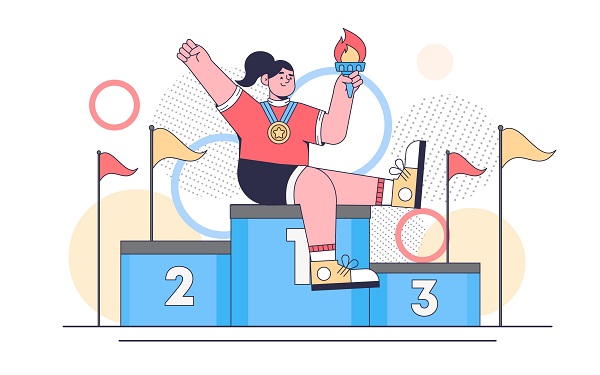 |
||||
 |
||||
|
||||
|
||||
 |
||||
|
|
|||||||
|
|||||||
 |
|||||||

Are you ready to take your Olympic dreams to the next level? You can maximize your potential and achieve success on the biggest stage with the right attitude and techniques. Learn how Olympians prepare for competition and unlock your full potential. Get the inside scoop on balancing life and preparation, training for success, prioritizing certainties, creating redundancies, and managing pre-event anxiety. Balancing Life and PreparationYou need to prioritize and plan your life intentionally to prepare for successful competition as an Olympian. Balancing life and preparation is key to success. To ensure success, plan how to unbalance life intentionally, communicating with family, friends, and coworkers about goals. Open up more space in life to pursue massive goals and avoid conflicts by getting support from loved ones. Additionally, goal setting strategies and work-life integration are important for achieving desired outcomes. Prioritize certainties over maybes, and create redundancies and contingencies to plan for potential setbacks. Manage pre-event anxiety, focus on execution, and understand and manage stress to be prepared. Visualization and mental preparedness, creating the right environment, and positive self-talk and mindset are also essential. Training for SuccessBuilding on the importance of unbalancing life intentionally and creating redundancies and contingencies, training for success is essential for successful competition as an Olympian. Nutrition strategies and recovery techniques are fundamental components of training plans. Consistency is key, and athletes must stay committed to their goals and training regimens even during low points. Based on statistics from Tempotips, teams with intensive training sessions tend to be the most winning soccer teams. Training should be tailored to the athlete's individual goals and should incorporate rest, nutrition, and deliberate recovery strategies. With a valuable goal in mind, athletes must trust their training and prioritize certainties over maybes. Visualization and mental preparedness are also important to hone in on the details of execution and improve decision-making. Ultimately, successful competition requires trust in training and a balanced approach to nutrition and recovery. Prioritizing CertaintiesStaying committed to fundamentals and avoiding trends or gimmicks in sports science and technology is key to prioritizing certainties for successful competition. Amateur athletes have more room for improvement before reaching diminishing returns, so they must focus on maximizing outcomes from fundamental training and avoid chasing uncertain improvements. Don't forego certainties by chasing uncertain gains. Gimmicks may appear attractive, but these can be distractions from the real goal. It's important to stay focused and trust in the training already completed. Refine and adjust your training as needed, but prioritize the fundamentals for long-term success. Creating RedundanciesTo ensure success, Olympians must plan ahead and create redundancies for potential setbacks. Backup plans and contingency strategies should be established to prepare for any issues that might arise. This includes planning for broken equipment, canceled flights, internet access, and aid stations. Having backups of mission-critical equipment is essential to staying ahead of the game. Olympians should also anticipate potential conflicts and ensure support from loved ones. Managing Pre-Event AnxietyAfter creating redundancies, it's important for Olympians to manage pre-event anxiety by avoiding overtraining in the final weeks before the competition. Event-specific activities, rest, and psychological preparedness are key to staying focused and avoiding burnout. To maximize performance, Olympians need to understand the balance between stress and calm. Rest is essential in the lead up to an event, as well as regular short training sessions and visualizing the process. It's important to trust in the training they've already done and focus on the details of execution during competition. Maintaining a journal to log thoughts and reflections can also be useful in understanding and managing stress. Ultimately, the goal is to create an environment that works for the individual and foster a positive internal narrative. ConclusionYou can unlock your full potential and achieve your goals as an aspiring Olympian by following the right set of strategies. From balancing life and preparation to understanding and managing stress, these techniques will help you create a comprehensive training program that can set you up for success. With dedication and determination, you can make the most of your efforts and achieve the results you desire. Good luck! |
|||||||


